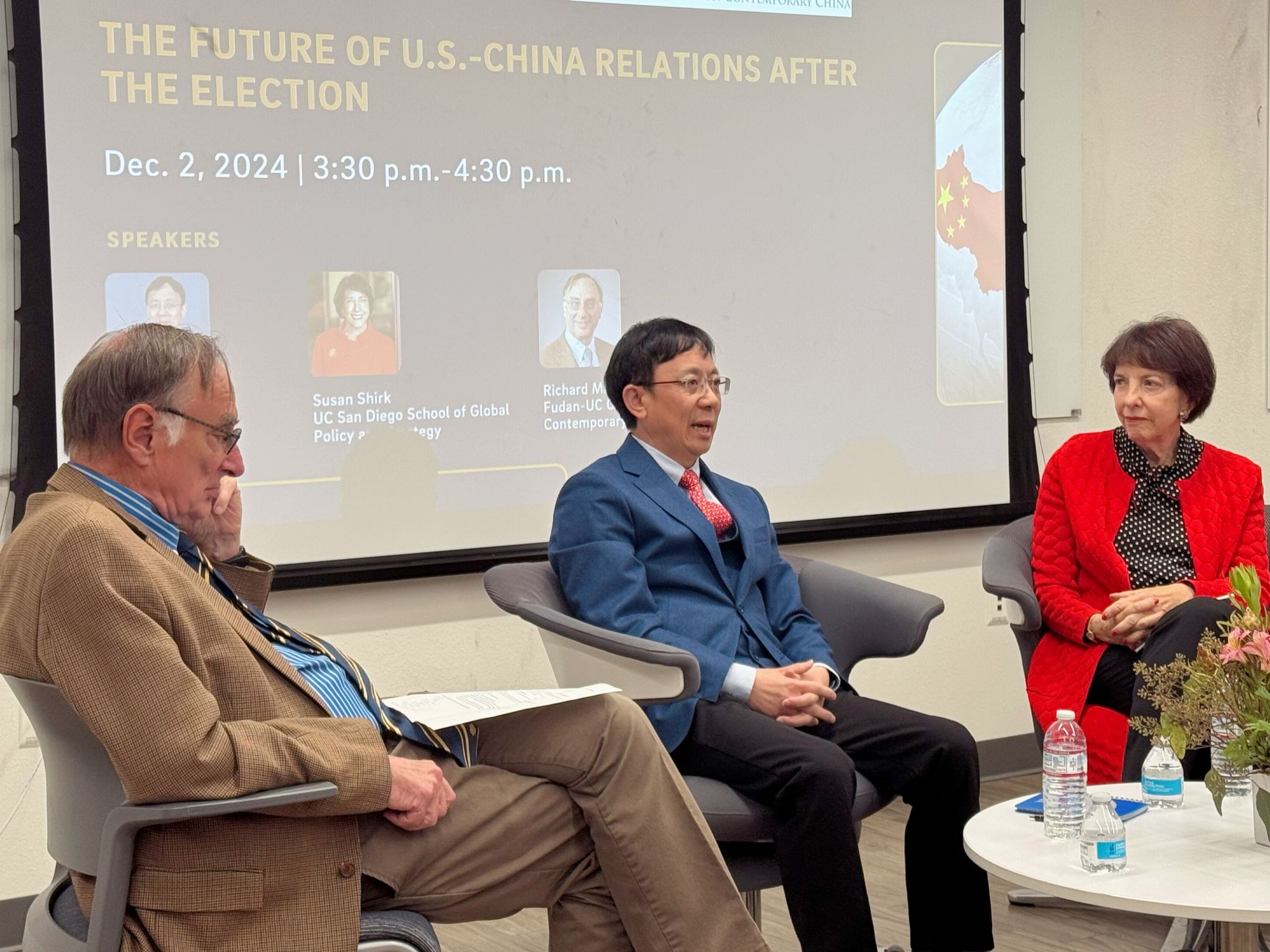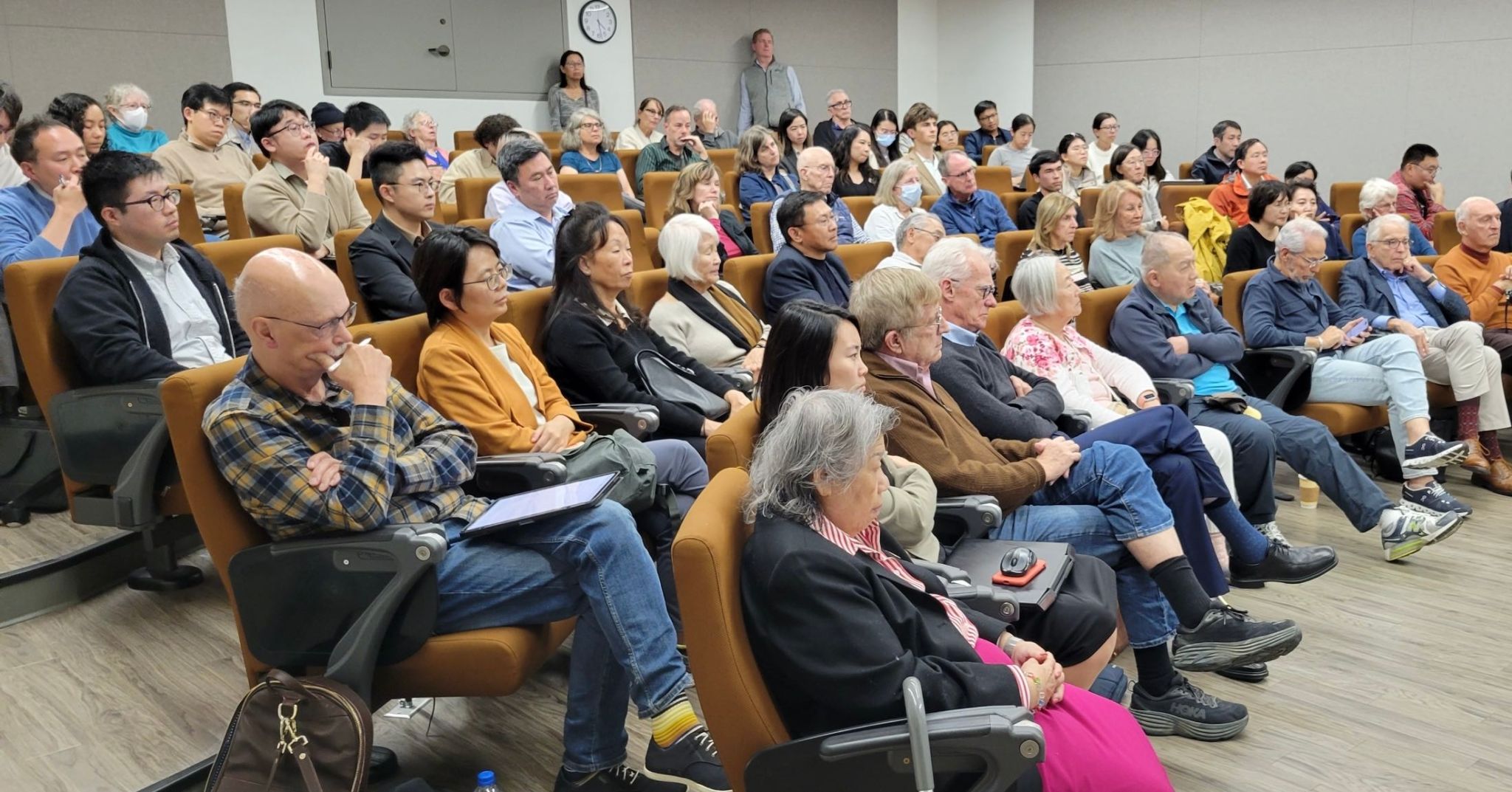On December 2, 2024, Professor Wu Xinbo, Director of the Center for American Studies at Fudan University and Dean of the Institute of International Studies, was invited to the United States to participate in an academic dialogue on the future of Sino-American relations following the U.S. presidential election. The event was jointly organized by the 21st Century China Research Center at the University of California, San Diego, and the Fudan-UC Center on Contemporary China. The dialogue featured Susan Shirk, a leading American scholar on China. Scholars and students from universities in both China and the U.S. took part in the discussion, which was held in a hybrid format, with both online and in-person participation.

Professor Wu opened the discussion by offering a historical analysis, using the framework of "three decades" and "three Americas" to assess the U.S. development since the Cold War. He argued that the "Trump phenomenon" has deep roots in a politically polarized and socially fragmented America that emerged in the aftermath of the 2008 financial crisis, suggesting that its effects will be long-lasting. Looking to the future, he emphasized that during the second term of the Trump administration, the central issue in Sino-American relations would likely be whether the two countries can reach agreements in the areas of trade and economic policy. This, in turn, would have a significant impact on the overall trajectory of bilateral relations. From the standpoint of ensuring long-term stability in the relationship, Professor Wu urged both sides to establish communication channels between their economic, trade, and security teams as soon as possible in order to better understand each other’s positions. Furthermore, he pointed out that, in contrast to the Trump administration's first term, China now possesses greater resilience and strategic autonomy in responding to U.S. policies aimed at competition.

Professor Shirk, in contrast, expressed a more optimistic perspective. She argued that both China and the U.S. need to negotiate mutually acceptable agreements in the economic and trade sectors to secure a stable external environment for their domestic development. She emphasized that early interactions between the two countries after the new U.S. administration takes office will be crucial in setting the tone for their future relationship. In this context, she underscored the importance of summit diplomacy in guiding the bilateral relationship, urging both countries to avoid the influence of domestic political factors, particularly the hardline elements within Trump’s foreign policy team. Shirk stressed that the two countries should focus on identifying economic areas of shared interest while working to prevent potential conflicts, especially in military matters and within the Indo-Pacific region.

Following the dialogue, participants, both online and in-person, actively engaged in a Q&A session. They discussed a range of topics, including the role that academic institutes can play in shaping future Sino-American relations, the evolving dynamics of Sino-American economic and trade competition, China’s "red lines" (bottom lines) in its approach to U.S. policy, and the future of the Taiwan Strait and South China Sea.

Prior to the main event, Professor Wu also held meetings with Caroline Freund, Dean of the School of Global Policy and Strategy at UC San Diego, as well as several other American scholars, to further explore key issues in Sino-American relations.



